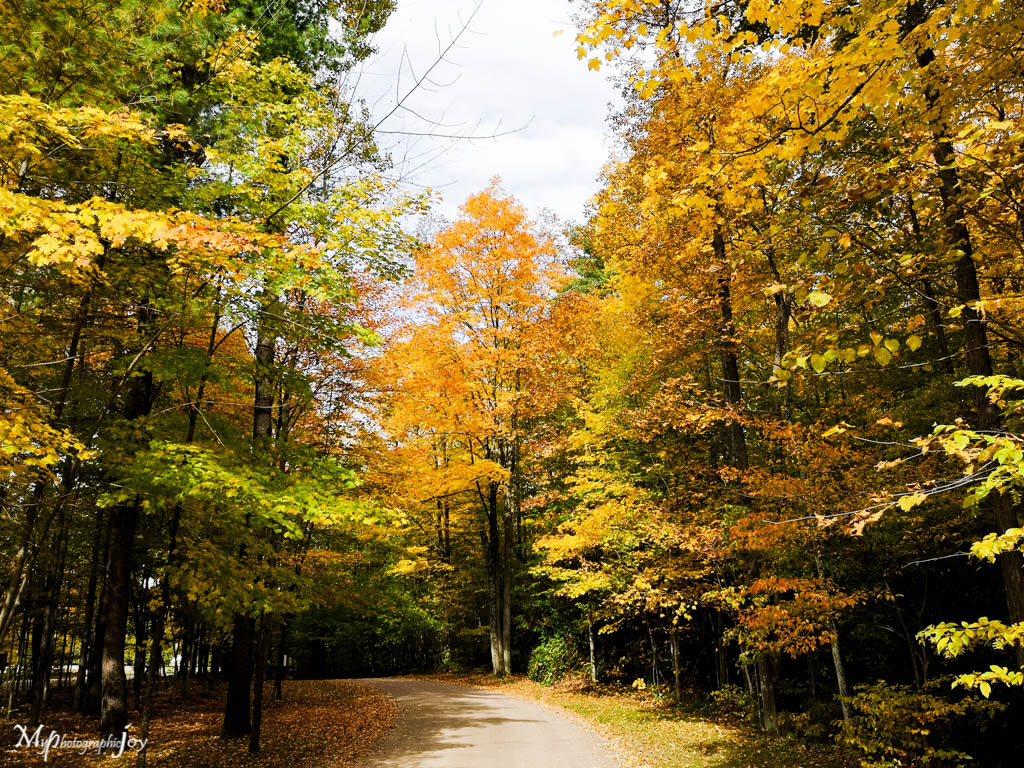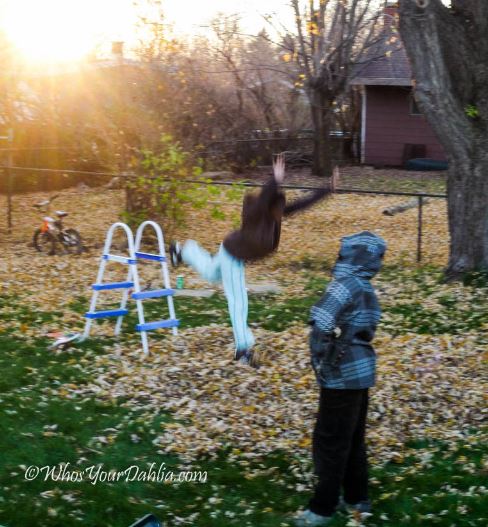Cut it , mulch it, rake it, store it and of course curse it!! That’s our usual fall mantra!
For we the North, get it we the North, ![]() … anyways… it’s that time of year again. The flowers and trees and grass get ready to say bye bye and we lose those beautiful blooms.
… anyways… it’s that time of year again. The flowers and trees and grass get ready to say bye bye and we lose those beautiful blooms.
As the temperature starts to drop, it’s a sad time for some, I know it is for me. Fall brings with it such a spectacular cascade of colors that it’s really hard to be/stay mad at it. Neighborhoods are now covered in shades of yellows, red, oranges and greens.

In October most annuals are dead or dying but if you’re a Dahlia gardener you know these beauties are still in full bloom and will be until the first frost.
Let’s not kid ourselves, we admire the beauty but still dread the time when that beautiful foliage makes its way to the ground. We know what comes next, the raking… Running through the leaves is fun at any age but…

What if I told you you don’t have to rake those leaves? What if I told you that not raking those leaves will not only help the environment but your garden as well as your lawn, which in turn helps birds, insects other animals which goes back to the helping the environment and in turn the environment? Well this circle of life is very circular isn’t it?
We’ve all heard that leaving leaves (sound so odd to say 😊) to overwinter in your yard can be detrimental to your lawn but as with everything in life it’s the quantity that counts.
While it is true that thick piles of leaves will smother your lawn if left through to the Spring. Fallen leaves are actually very beneficial, not just to your yard but to wildlife . These leaves provide insulation and protection to wildlife, insects and the soil during the winter months. The composted leaves feeds the soils and the many microbes in the soil. These microbes not only benefits the soil, wildlife, and insects but we wee humans also owe them a debt of gratitude. Learn more about gardening and your health.
“Fallen leaves offer a double benefit. Leaves form a natural mulch that helps suppress weeds and fertilizes the soil as it breaks down. Why spend money on mulch and fertilizer when you can make your own?” David Mizejewski – National Wildlife Federation Naturalist
Here’s how:
- Mowing over these leaves will enhance a lawn’s fertility. Mowing breaks the leaves into much smaller pieces, so they compost a lot faster. No special mulching attachment required, just your little ole mower.
- Rake the leaves into your flower\garden beds or around trees.
- Add leaves leaves to your home compost
- AND!!! This means that we can do our part to keep these bags of leaves out of our land fills.
Just a couple things, Don’t wait until you have 4 feet of leaves in your yard. Mow over the leave covered yard a few times during the season. Don’t make you leaf piles too thick unless you are making a compost pile. This could lead to your grass dying.
We have a very bad habit of paying for things we can get for free. Raking leaves into your garden beds provides rich compost for your next growing season. Each layer of leaves decomposes over time. By the spring time the bottom layer is already converted into a rich soil. The remaining layers can be worked into the soil, which provided even more nutrition. Remember, the thicker the piles the richer the compost.
Can one person make a difference? Yes you can!
One person can make a difference and it doesn’t cost you a dime. You’re doing something that you do anyways.
Just imagine what would happen if more people did this.
Millions of bags of leaves end up in landfills every year. Imagine if just 1 percent of those are put back into our yards, garden beds, flower beds or just used in our home composts.
So why not leave those leaves to lay awhile![]()
Would you give it a try this fall?
WhosYourDahlia – It’s About Bloomin‘ Time!
